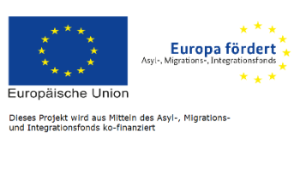Managing The Transition

The Goethe-Institut is involved in pre-integration language teaching for immigrants. Quality in this sector has improved significantly in recent years.
By Goethe-Institut
Quality standards in both these areas have improved dramatically in recent years. What a pity, then, that the transition from the language course in the home country to the integration course in Germany does not always run smoothly. In order to investigate the reasons why and to improve what is now known as “transition management”, the Goethe-Institut carried out a study on the transition period, whose findings have just been published. The study received methodological support from Rambøll Management Consulting and financial support from the European Integration Fund (EIF) and the Federal Office for Migration and Refugees.
Representative data and indicators are now available for the first time. They show that on average, six months elapse after prospective migrants take the German language examination in their home country until they move to Germany, and a further five months elapse from the time they enter Germany until they start the integration course. In other words, the transition period lasts an average of 11 months. Overall, the pre-integration courses are having a positive effect: most of the immigrants surveyed consider, looking back, that learning the language in their home country was very helpful (58 per cent) or helpful (30 per cent) in preparing them for life in Germany. However, the study also shows that a large percentage of new arrivals with a Goethe-Zertifikat A1, which certifies their basic language skills, from their home country go back to the beginning and start the integration course in Germany with Module 1.Research studies on language acquisition and neurolinguistics show that language skills which are acquired very quickly can often vanish just as swiftly if they are no longer used. This is probably the reason why, when the level of German language proficiency is assessed in order to place immigrants in the appropriate class on the integration course – usually around a year after taking the examination in the home country – their formal language skills often no longer match up to A1 standard. However, students may also be feeling a certain amount of insecurity in their new surroundings, and this undoubtedly plays a role as well.
The study shows that the immigrants themselves are highly motivated and are very keen to practise and increase their lanThe study shows that the immigrants themselves are highly motivated and are very keen to practise and increase their language and orientation skills during the transition period. However, many of them find it difficult to continue learning without support and guidance or find appropriate ways of learning independently. The requisite learning strategies and techniques should therefore be taught beforehand, during a preparatory course. What’s more, there is a general shortage of learning and information material as well as practical exercises designed specifically for this target group and their needs, to enable them to continue their independent learning during the transition period. Again, this should be provided as part of a course, according to the study.
The study also identified a substantial need for advisory services in the mother tongue, starting in the home country and continuing during the transition period as a form of further support for immigrants, and finally guiding them towards the advisory services available in Germany itself.
And finally, the great interest in working with new media during the transition period was particularly striking. The Goethe-Institut is responding to this demand by setting up an Internet platform which will enable prospective immigrants to practise and develop their German language skills and knowledge of Germany, to access the information they need to prepare for their future life in Germany, and to network with each other.
Funded by:
